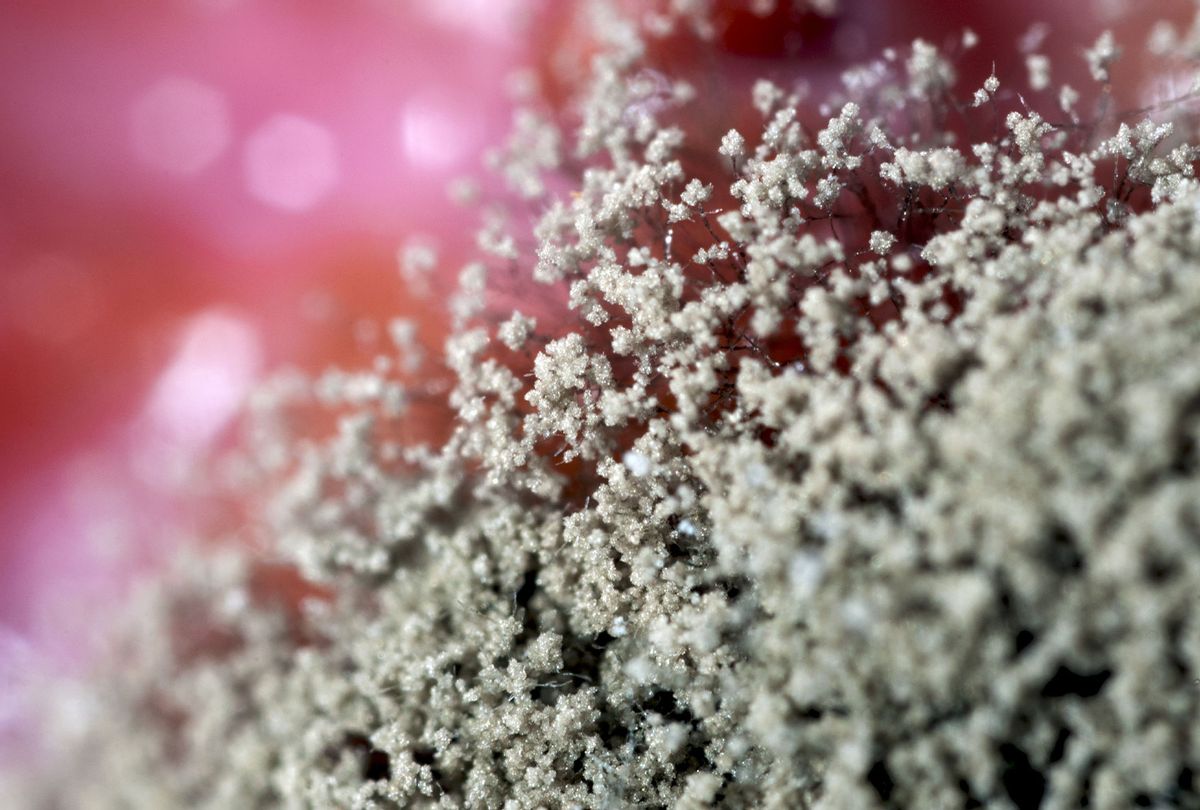Doctors in India who are tending to the country's horrific COVID-19 outbreak have been advised to look out for signs of mucormycosis, also known as "black fungus," in coronavirus patients.
Over the weekend, the Indian Council of Medical Research (ICMR) said those who are treating COVID-19 patients, diabetics and people with compromised immune systems should be on the lookout for early symptoms of mucormycosis, as a disconcerting number of people who are recovering from COVID-19 are dying of this rare but deadly fungal infection. Officials at ICMR said there was no need to panic, but that health professionals merely need to be made aware of the situation.
"There have been cases reported in several other countries — including the UK, U.S., France, Austria, Brazil and Mexico, but the volume is much bigger in India," David Denning, a professor at Britain's Manchester University and an expert at the Global Action Fund for Fungal Infections (GAFFI) charity, told Reuters. "And one of the reasons is lots and lots of diabetes, and lots of poorly controlled diabetes."
The connection and association between the rare fungal infection and COVID-19 is unclear. According to Reuters, one Indian doctor said previously it was normal to have one mucormycosis patient a year; but since the COVID-19 crisis, it's been once a week.
What is mucormycosis?
The United States Centers for Disease Control and Prevention (CDC) states that mucormycosis mainly affects people who have underlying health problems or take medicines that prevent the body's ability to fight germs and illness. It commonly affects one's lungs after inhaling fungal spores in the air, as the molds that cause it live throughout the environment.
Mucormycosis can also occur on the skin after a burn, cut, or other types of skin injury.
What are the symptoms?
Symptoms can include facial swelling on one side of the face, a headache, nasal or sinus congestion, black lesions on the nasal bridge or inside the mouth, or a fever. If someone has mucormycosis on their lungs, symptoms usually include a fever, cough, chest pain and shortness of breath. When someone has skin (cutaneous) mucormycosis, it can physically manifest as blisters, ulcers, and the infected area may turn black.
How deadly is it?
Mucormycosis has a mortality rate of nearly 50 percent.
Can it be treated?
Yes. Usually with a prescribed antifungal medicine. Sometimes surgery is needed to physically cut out the infected tissue.
Is this new to India?
No. As reported by The New York Times, it was present before COVID-19. However, as previously mentioned, doctors are seeing more recovered COVID-19 patients infected with it.
"We have heard that in some areas, people who are Covid-infected or recovered suffer from mucormycosis, but there is not a big outbreak of it," Dr. V.K. Paul, who heads India's Covid task force, said. "We are watching and monitoring."
Is COVID-19 to blame?
Unclear. Some health officials suspect it could be the result of trying to treat hospitalized COVID-19 patients with steroids.
"You are using steroids to reduce the hyperimmune response, which is there in Covid," said Dr. K. Srinath Reddy, who leads the Public Health Foundation of India. "But you are reducing the resistance to other infections."
As BBC News further explained: "Steroids reduce inflammation in the lungs for COVID-19 and appear to help stop some of the damage that can happen when the body's immune system goes into overdrive to fight off coronavirus. But they also reduce immunity and push up blood sugar levels in both diabetics and non-diabetic COVID-19 patients. It's thought that this drop in immunity could be triggering these cases of mucormycosis."
Want more health and science stories in your inbox? Subscribe to Salon's weekly newsletter The Vulgar Scientist.



Shares